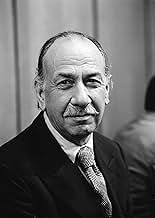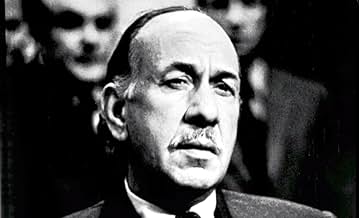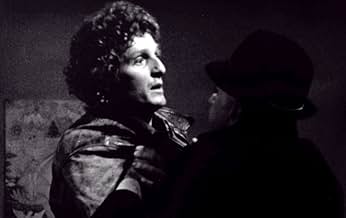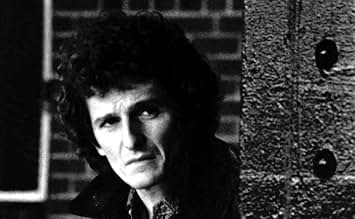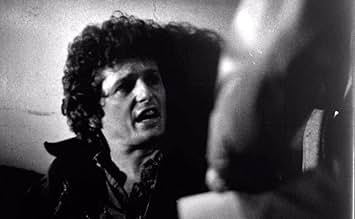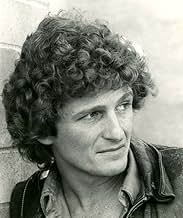A homicide detective begins to suspect that the black teenager accused of murdering two white girls is being framed by his fellow detectives.A homicide detective begins to suspect that the black teenager accused of murdering two white girls is being framed by his fellow detectives.A homicide detective begins to suspect that the black teenager accused of murdering two white girls is being framed by his fellow detectives.
- Won 2 Primetime Emmys
- 3 wins & 4 nominations total
José Ferrer
- Jake Weinhaus
- (as Jose Ferrer)
- Director
- Writers
- All cast & crew
- Production, box office & more at IMDbPro
Featured reviews
I came across this movie whilst channel surfing and boy was I pleasantly surprised. I was expecting an episode of the TV series but instead got a gritty 70'd classic. This a low down story of Police and the systems corruption which is still relevant today. Telly Savalas is superb as Kojack the only decent cop in New York who is prepared to see the set up that is taking place. A slow reveal with excellent supporting cast makes this a recommendation for everyone. This is truly an undiscovered gem that if it was a cinema movie would still be lauded today. This is a movie that really needs wider exposure. Now how to I go about getting the to show it at the BFI?
If this had been released theatrically, it could have been a candidate for some Oscars, and likely on most "10 best" film lists for 1973. Probably can be easily said that it's at least one of the 10 best TV films ever made, and ranks right up there with DUEL. It's Telly Savales' best performance, and that means he's superb. It's the role he was meant to play and no wonder it became the popular KOJAK television series. I saw this when first broadcast in 1973, and found it completely absorbing, at a time when I was more interested in action and horror stuff, like most kids, and when I could barely sit still for anything dramatic, but Savales held my attention, and the storyline never sagged. Everything in the film is top-notch, and a later second viewing years afterward only confirmed this. You won't be disappointed!
"The Marcus-Nelson Murders" is a made for TV movie set in the summer of 1963 that turned out to be the pilot for "Kojak". It's based on a real case, 'The Career Girl Murders' of Emily Hoffert and Janice Wylie, though names and a few other details have been changed. The film details the investigation as well as the misconduct by the New York Police Department, as the accused was denied his rights to an attorney and was forced into confessing for a crime he did not commit. This is a fact, as the real killer was eventually caught and later confessed to the crime...though the falsely accused man was also sent to prison for several years! The injustice of the case helped lead to the landmark Miranda Decision in 1966.
The story begins with two young women being attacked and viciously murdered by a psycho with a knife. One was also raped.
You never see who he is and the film shows the case from the standpoint of the police department...as well as from the investigator, Lieutenant Kojack (the name was changed to 'Kojak' for the TV series). Over time, he starts to wonder if the confession was infact coerced and if the young man is being victimized. Naturally, the Department is not thrilled with Kojack's actions and they just want him to just drop his inquiry...especially the prosecutor.
If you are expecting something like "Kojak", you'll probably be disappointed. Aside from Telly Savalas and a brief scene where George Savalas plays a reporter, the cast is entirely different from the TV show. This isn't good nor bad...it's just different. And, it's generally a very good film. My only quibble is a very small one...everything looks like 1973 instead of 1963...such as clothing and hairstyles.
By the way, this film came out the same year as "Serpico"...a true film about corruption within the New York Police Department.
The story begins with two young women being attacked and viciously murdered by a psycho with a knife. One was also raped.
You never see who he is and the film shows the case from the standpoint of the police department...as well as from the investigator, Lieutenant Kojack (the name was changed to 'Kojak' for the TV series). Over time, he starts to wonder if the confession was infact coerced and if the young man is being victimized. Naturally, the Department is not thrilled with Kojack's actions and they just want him to just drop his inquiry...especially the prosecutor.
If you are expecting something like "Kojak", you'll probably be disappointed. Aside from Telly Savalas and a brief scene where George Savalas plays a reporter, the cast is entirely different from the TV show. This isn't good nor bad...it's just different. And, it's generally a very good film. My only quibble is a very small one...everything looks like 1973 instead of 1963...such as clothing and hairstyles.
By the way, this film came out the same year as "Serpico"...a true film about corruption within the New York Police Department.
This is amazing. Kojak is more low-key here than in the series. His voiceover, especially at the end, is excellent. It's got a semi-documentary tone, thanks to the narration, comparing favorably with The Naked City. The collection of actors is good too --Jose Ferrer, Ned Beatty, Marjoe Gortner, Bruce Kirby, Allen Garfield, etc. This is a little-remembered gem, like so many forgotten pilots for successful TV shows.
I love true stories, especially this one. Based on the book by author Selwyn Raab, (a New York Times reporter) "Justice in the Back Room". This film was intense and very close to the book. The main character Louis Humes was played by Gene Woodbury who played the part perfectly as a shy uneducated black kid that was unjustly accused of an attempted rape, a murder in Brooklyn and also implicated in a double homicide in Manhattan. The newspapers in 1963 dubbed this as the Career Girl Murders. The film calls it the Marcus Nelson murders. The story rubbed me the wrong way because at the end, the narration said Humes was still in jail. It also said the prosecutor was elected an assemblyman. I wanted to know about this and read the book. Humes(not his real name) was finally cleared but the NY police tried to pin a mugging charge against him when he was in south Jersey. He was cleared of that too. Kojak is a composite of Selwyn Raab and some police officers that care.
Did you know
- TriviaThe film is based on an actual case known as the "Career Girl" murders that happened on 28 August 1963. It was the date on which Martin Luther King delivered his "I Have A Dream" speech, as mentioned in the film.
- GoofsWhen Lt. Theo Kojack drives to Lewis Humes's party, a camera shot inside his Ford Torino shows the car has a plastic, sport side-view mirror on the driver's door. When he arrives and parks to proceed to the party, the Torino now has a metal, square, chrome, side-view mirror on the driver's door.
- Quotes
Jake Weinhaus: That's a nice woman, Saul. She managed to say goodbye even though I told her I couldn't save her son.
- ConnectionsFeatured in The 25th Annual Primetime Emmy Awards (1973)
Details
- Release date
- Country of origin
- Language
- Also known as
- Der Mordfall Marcus-Nelson
- Filming locations
- St Johns Pl and East New York Avenue, Brooklyn, New York City, New York, USA(Patrolman Stabile first finds Lewis Humes - north corner - then phones from police callbox - east corner of East New York Avenue and Strauss St.)
- Production companies
- See more company credits at IMDbPro
- Runtime
- 2h 5m(125 min)
- Sound mix
- Aspect ratio
- 1.33 : 1
Contribute to this page
Suggest an edit or add missing content

